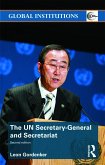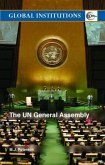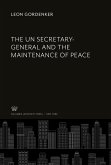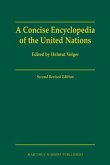The Secretary-General of the United Nations is a unique figure in world politics. At once civil servant, the world's diplomat, lackey of the UN Security Council, and commander-in-chief of up to a hundred thousand peacekeepers, he or she depends on states for both the legitimacy and resources that enable the United Nations to function. The tension between these roles - of being secretary or general - has challenged every incumbent. This book brings together the insights of senior UN staff, diplomats and scholars to examine the normative and political factors that shape this unique office with particular emphasis on how it has evolved in response to changing circumstances such as globalization and the onset of the 'war on terror'. The difficulties experienced by each Secretary-General reflect the profound ambivalence of states towards entrusting their security, interests or resources to an intergovernmental body.
'This is a timely book on an exceedingly important subject at the current juncture in world affairs: the role of the UN Secretary-General, the personification of 'the international community'. It offers significant insights from scholars and practitioners alike, and will be required reading for Kofi Annan's successor.' John G. Ruggie, Kirkpatrick Professor of International Affairs, Kennedy School of Government, Harvard University








